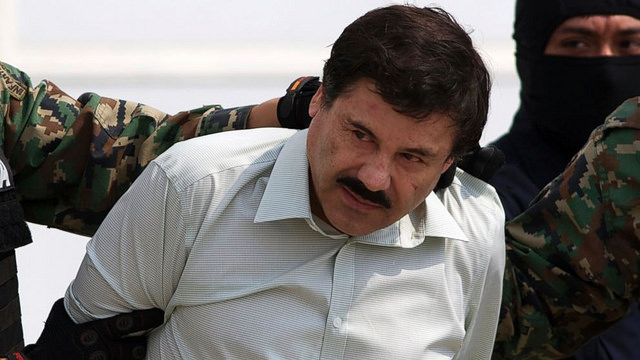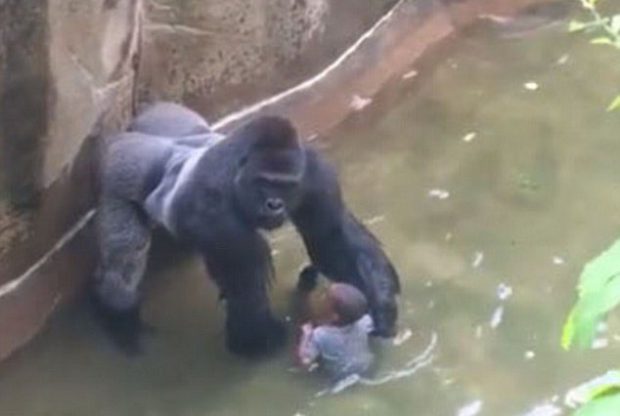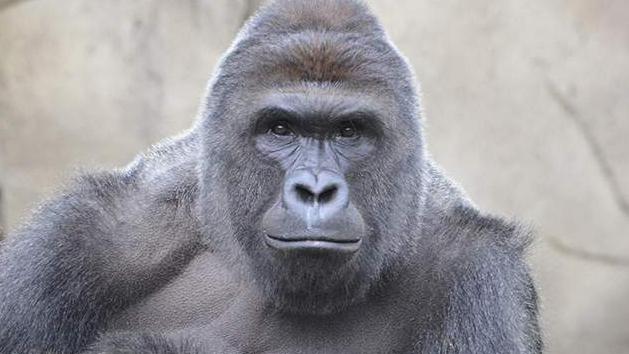Guzman of the Year
Photo Credit: Day Donladson
El Chapo is captured. Photo courtesy of Day Donaldson
January 29, 2016
On July 11th, 2015, a man took a shower. But why should you care? Well, because that man was Joaquin Guzman “El Chapo” and that shower was an escape tunnel out of the highest security prison in Altiplano, Mexico. It was not until January 8th of this year that he was recaptured, following and perhaps directly related to, his interview with Sean Penn.
This is not the first time that El Chapo has escaped from prison. Back in 2001, when we were all too young to know who El Chapo was, he was 47 or 44, depending on the birthday you choose. El Chapo escaped and was on the run until February of 2014. So, besides the corruption of the Mexican government and the ineffectiveness of its prison system, what do El Chapo’s multiple escapes and recaptures mean in the context of global politics?
In his interview with Penn, Guzman states that drugs are, in Mexico, one of the only ways to make a living. When asked if he is responsible for the high level of drug trafficking, he responded that he couldn’t possibly be. And he’s right: the opium trade is what connected the eastern and western hemispheres, heroin and cocaine and alcohol were used as medicine before the science had come too far. El Chapo is the leader of the Sinaloa Cartel, it is one of the largest in the world and it affects more of Mexico, and the United States than many would like to accept.
Now that El Chapo is in prison, it is quite possible that his drug trade will suffer as a result. Just kidding. Pablo Escobar ran his crime syndicate from prison, Guzman has successfully run it while being the object of Mexico’s largest active manhunt for thirteen years, and, like his size 36 pants, most prisons don’t seem to hold El Chapo. As far as experts and most people who understand basic politics understand, the relationship between the government and Guzman’s cartel is intertwined, and one cannot function without the other’s cooperation; if the police try to take down the cartel, the economic situation could grow even more disparate, and if the cartel oversteps their bounds, the police will have to take even greater action. Either way, as long as the two don’t leave the others be, violence will ensue.
As it stands, the Mexican president Enrique Peña Nieto is struggling amid near-constant disaster and a continual slip into power struggles and federal problems, leaving him with no choice. So where does he turn? You guessed it: Team America, World Police. With hundreds of eyes watching, the U.S. Department of Justice could, and is very well likely to, try El Chapo in an American court system on charges of national and international law. Based on our staggering incarceration rates, it is highly unlikely that he would continue to escape if locked up in America.
Despite the questionable choice of Sean Penn to attempt journalism, Guzman’s frequent answer of essentially “Hey, man, I don’t want no trouble,” and Mexico’s alarming lack-of-ability to hold onto the drug lord makes El Chapo’s words ring true. In his state of Sinaloa, he is more loved than feared; his trade, though vicious and violent by nature, brings work and economy to a region in dire need otherwise. For Mexico and the world, the drug trade has been an issue since before people understood the effects of drugs. No matter what El Chapo does, or where he goes, one thing is clear– drugs aren’t going anywhere anytime soon.




